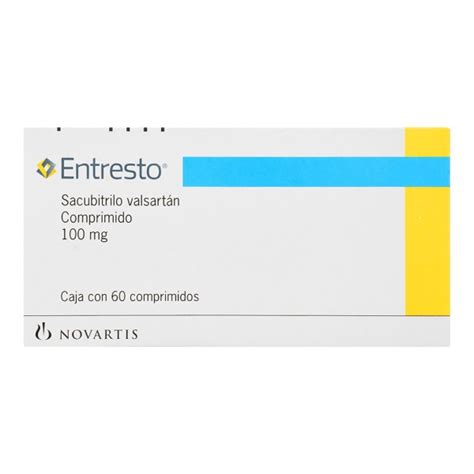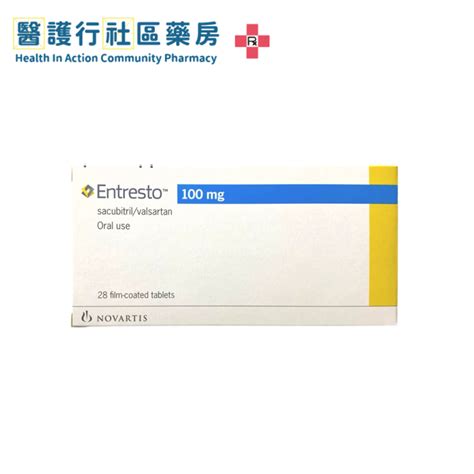Intro
The medical field has seen numerous breakthroughs in recent years, and one of the most significant advancements has been in the treatment of heart failure. Heart failure is a chronic condition where the heart is unable to pump enough blood to meet the body's needs, and it affects millions of people worldwide. One of the most promising treatments for heart failure is Entresto, a medication that has been shown to improve symptoms and reduce the risk of hospitalization and death. In this article, we will delve into the world of Entresto, exploring its benefits, working mechanisms, and key information related to this life-changing medication.
Entresto is a combination of two drugs, sacubitril and valsartan, which work together to improve heart function and reduce the risk of heart failure. The medication is designed to be taken orally, once or twice a day, and it has been shown to be effective in reducing the risk of hospitalization and death from heart failure. The benefits of Entresto are numerous, and it has been hailed as a game-changer in the treatment of heart failure. By reducing the strain on the heart and improving its ability to pump blood, Entresto can help to alleviate symptoms such as shortness of breath, fatigue, and swelling in the legs and feet.
The working mechanism of Entresto is complex, but it can be broken down into simple terms. Sacubitril, one of the components of Entresto, works by increasing the levels of a natural substance in the body that helps to relax and widen blood vessels. This allows the heart to pump blood more efficiently, reducing the strain on the heart and improving its function. Valsartan, the other component of Entresto, works by blocking the action of a natural substance in the body that narrows blood vessels, allowing blood to flow more easily and reducing blood pressure. By combining these two medications, Entresto provides a powerful treatment for heart failure, reducing the risk of hospitalization and death.
Benefits of Entresto

How Entresto Works
Entresto works by combining the effects of sacubitril and valsartan, two medications that have been shown to be effective in treating heart failure. Sacubitril works by increasing the levels of a natural substance in the body that helps to relax and widen blood vessels, allowing the heart to pump blood more efficiently. Valsartan works by blocking the action of a natural substance in the body that narrows blood vessels, allowing blood to flow more easily and reducing blood pressure. By combining these two medications, Entresto provides a powerful treatment for heart failure, reducing the risk of hospitalization and death.Key Information About Entresto

Entresto Dosage and Administration
The dosage and administration of Entresto are critical to its effectiveness, and it is essential to follow the instructions provided by your doctor. Entresto is typically taken orally, once or twice a day, and it is available in several different dosages. The recommended starting dose of Entresto is 49/51 mg twice daily, and it can be increased to 97/103 mg twice daily after 2-4 weeks. It is essential to take Entresto exactly as prescribed by your doctor and not to stop taking it without consulting your doctor first.Entresto Side Effects

Entresto Interactions with Other Medications
Entresto can interact with other medications, including diuretics, ACE inhibitors, and ARBs, so it is essential to tell your doctor about all the medications you are taking before starting Entresto. Entresto can also interact with potassium-sparing diuretics, which can increase the risk of high potassium levels in the blood. It is essential to monitor your potassium levels regularly while taking Entresto, especially if you are taking other medications that can increase potassium levels.Who Can Take Entresto

Entresto and Pregnancy
Entresto is not recommended for use in pregnant women, as it can cause harm to the fetus. Entresto can increase the risk of birth defects, including damage to the kidneys and lungs, and it can also increase the risk of miscarriage. Women who are pregnant or planning to become pregnant should not take Entresto, and they should talk to their doctor about alternative treatment options.Entresto and Breastfeeding

Entresto and Other Medical Conditions
Entresto can interact with other medical conditions, including kidney disease, liver disease, and diabetes. People with these conditions should talk to their doctor about the risks and benefits of taking Entresto, and they should be monitored closely for side effects. Entresto can also increase the risk of hyperkalemia, a condition characterized by high potassium levels in the blood, in people with kidney disease or those taking other medications that can increase potassium levels.Conclusion and Final Thoughts

We invite you to share your thoughts and experiences with Entresto in the comments below. Have you taken Entresto or know someone who has? What were your experiences with the medication? Share your story and help others understand the benefits and risks of Entresto.
What is Entresto used for?
+Entresto is used to treat heart failure with reduced ejection fraction (HFrEF), a condition characterized by a reduced ability of the heart to pump blood.
How does Entresto work?
+Entresto works by combining the effects of sacubitril and valsartan, two medications that have been shown to be effective in treating heart failure. Sacubitril works by increasing the levels of a natural substance in the body that helps to relax and widen blood vessels, allowing the heart to pump blood more efficiently. Valsartan works by blocking the action of a natural substance in the body that narrows blood vessels, allowing blood to flow more easily and reducing blood pressure.
What are the common side effects of Entresto?
+The most common side effects of Entresto include dizziness, lightheadedness, and increased potassium levels in the blood. Other side effects of Entresto include cough, fatigue, and headache.
